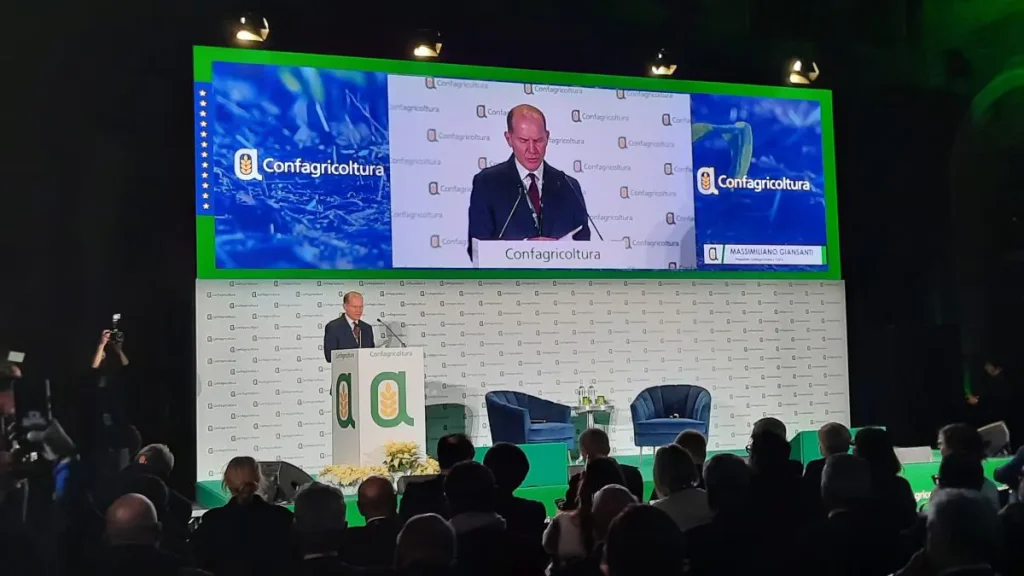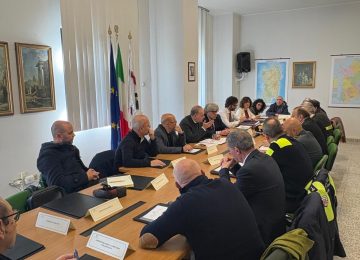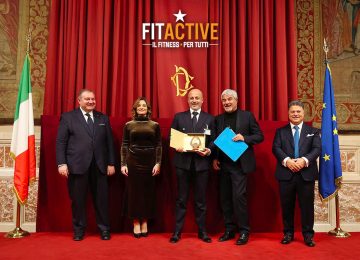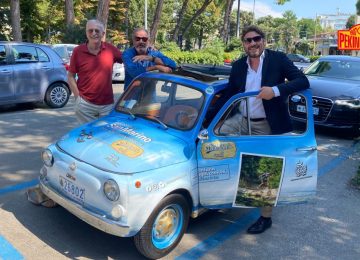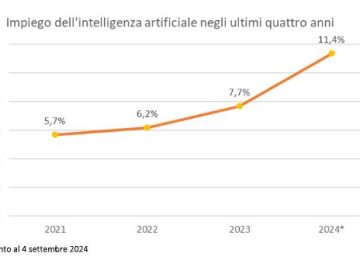ROMA (ITALPRESS) – “Agriculture is the beating heart of our economy and society. Above all, it is the foundation of our hope for a better future.” This was how the President of Confagricoltura, Massimiliano Giansanti, wrapped up his speech at the winter assembly in Rome, unveiling a Competition Plan “to lead the agricultural sector into a new phase of competitiveness, where every decision and action contributes to creating value, protecting the territory, and strengthening our country’s position in international markets.” It is described as “a strategic initiative to redefine the future of Italian agriculture and position it as a global leader,” and not merely “a statement of intent, but a true action plan that translates ideas into tangible results,” he emphasized. “To transform agriculture into a more productive, sustainable, and resilient sector, we must adopt policies, innovations, and resources that enable us to shift from thought to action, from analysis to concreteness. The tools we have must not only be adequate but also long-term focused, capable of addressing present challenges and anticipating future ones.”
Among the primary levers to address is the CAP, which “must be reformed to better meet the challenges of the present and future,” transitioning “from a merely redistributive approach to a truly strategic one that rewards those who invest in sustainability, innovation, and competitiveness.” For Confagricoltura, “agricultural policies must adapt to the specific needs of territories, recognizing climatic, economic, and productive diversities within the European Union” and “the CAP must be the engine of the ecological transition, supporting agricultural practices that protect soil, water resources, and biodiversity.” Furthermore, “climate change and market volatility make it increasingly urgent to create risk management tools: we cannot leave our farmers alone in the face of unpredictable events,” emphasizing the need for “mutual funds” that “allow farmers to share the economic risks associated with extreme weather events or market crises,” advanced insurance models that “cover not only production losses but also the costs related to restoring activities,” and “targeted public interventions” with “a European regulatory framework that supports national emergency funds and ensures rapid responses in times of crisis.”
It is also necessary to “accelerate the digitalization of the agricultural sector, ensuring that every business can benefit from the available innovations,” focusing on precision agriculture and “innovative technologies that optimize the use of resources such as water, fertilizers, and pesticides, ensuring cost reduction and lower environmental impact,” as well as on “digital platforms to connect farms with production and commercial supply chains, improving traceability, efficiency, and planning capacity,” in addition to “assisted evolution techniques (TEA), to develop more resilient crops better adapted to climate changes,” and exploring new frontiers in agriculture such as “vertical farming, which allows for increased production in both quality and quantity, requiring targeted strategies and adequate investments to unlock its full potential.” It is essential to “place research at the heart of our policies: only through innovation can we make agriculture more efficient, sustainable, and competitive.” At the international level, “trade is an opportunity but also a challenge: trade agreements must be tools to open markets, not to compromise our production model,” Giansanti points out. There is a need to “protect Made in Italy and other European excellences from imitations and counterfeits in global markets” and to adapt infrastructures “to a performing and competitive sector, integrated with a system of centralized agri-markets, as a defining element of a modern distribution system,” ensuring that agreements like Mercosur “guarantee that imported products meet the same quality, food safety, and sustainability criteria required of European farmers.”
On this topic, the Executive Vice President of the European Commission, Raffaele Fitto, noted, “the agreement is signed” but “we have every condition to identify elements that can meet the demands from the agricultural world, to provide guarantees and certainty on certain aspects.” Regarding Mercosur, the Minister of Agriculture, Francesco Lollobrigida, emphasized, “It is obvious that Italy can have an overall gain, but at the cost of some sectors that could be left vulnerable. They must be certain that they have not been sacrificed for others.” The Minister of Labor, Marina Calderone, also participated in the winter assembly of Confagricoltura, expressing her readiness to establish a permanent table focused on the reform of labor in agriculture, aiming for agricultural work to evolve from being episodic and seasonal to a framework that allows for valuing the skills and strengthening the bond between businesses and workers.
– Photo xi2/Italpress –
(ITALPRESS).

